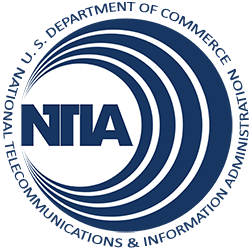Broadband’s ability to expand educational and employment opportunities is especially meaningful for Americans who are deaf or hard of hearing, a community that faces unique challenges in education and that suffers from a rate of unemployment much higher than the national average. Communication Service for the Deaf, Inc. (CSD) intends to expand broadband adoption among people who are deaf and hard of hearing and provide them with online tools to more fully participate in the digital economy. The project proposes to employ a combination of discounted broadband service and specialized computers, technology training from an online state-of-the art support center customized to the community’s needs, public access to videophones at anchor institutions from coast to coast, and a nationwide outreach initiative. Thousands will gain online access to all the Internet has to offer, including sign language interpreters, captioned video services, and other content and functionalities designed especially to advance their educational, employment, and healthcare interests.
Nebraska

| Grantee | Total Award | Type |
|---|---|---|
| Communication Service for the Deaf, Inc. | $14,988,657 | Sustainable Adoption |
| Nebraska Public Service Commission | $5,662,785 | Broadband Data & Development |
| NebraskaLink, LLC | $11,547,866 | Infrastructure |
| The State of Nebraska | $2,416,403 | Public Computer Centers |
| University Corporation for Advanced Internet Development | $62,540,162 | Infrastructure |
Project Components
State Broadband Capacity Building:
The Nebraska Broadband Capacity Building Program will survey businesses, local governments, economic developers, and households statewide to augment prior SBDD-funded activity to support the development of regional and statewide broadband plans, and to gather benchmark data to evaluate program success. The Nebraska Information Technology Commission’s community council along with its advisory groups will act as the state’s advisory group on broadband planning. NITC members represent libraries, economic and workforce development organizations, telecommunications providers, and the Nebraska Public Service Commission.
Technical Assistance:
The Nebraska Broadband Technical Assistance Program, led by the University of Nebraska, Nebraska Department of Economic Development, the Nebraska Information Technology Commission, and the AIM Institute of Omaha will provide technical assistance to local governments, chambers of commerce, economic developers, Indian tribes and resource providers in communities with lower than average broadband subscribership. The project will specifically offer direct training to local governments in areas such as cybersecurity and e-agriculture, and will also survey the target communities to determine the specific interventions needed in that community.
Local Regional Technology Planning Teams:
The initial SBDD funding supported the development of regional broadband plans. This supplement will allow the Nebraska Public Service Commission, in collaboration with the University of Nebraska – Lincoln, to form additional teams in areas identified as underserved through the first round of broadband availability data collection and the recently completed statewide survey. The Commission will also hold additional focus groups with the business community, chambers of commerce/economic developers, local and county stakeholders in government and the agriculture community.
Data Collection, Integration, and Validation:
This project was originally funded for broadband planning activities and two years of data collection. In September of 2010, this project was amended to extend data collection activities for an additional three years and to identify and implement best practices.
NebraskaLink, a partnership between seven local telecommunications providers, proposes to deploy a highspeed, middle mile fiber-optic network across nearly the entire state of Nebraska. The proposed Connecting Nebraska Communities’ nearly 2,000-mile network, including 450 miles of newly constructed fiber in western Nebraska, will serve community anchor institutions as well as at least 23 last-mile broadband providers that have expressed an interest in using the network to provide local consumer service, improving access to public safety entities, schools and community colleges, healthcare facilities, and libraries.
To make broadband service available to low-income, aged, and other underserved or economically at-risk
populations in the state, the Nebraska Library Commission proposes to enhance technological capabilities and
support at 147 public libraries statewide that house public computer centers, nearly all of which serve
communities whose median income is below the national average. In addition to driving broadband adoption,
the project plans to advance access to distance learning, health information, and e-government services.
As part of a longstanding project to connect essential community anchor institutions across the country, and facilitate closer collaboration and long-term benefits for education, research, healthcare, public safety, and government services, the University Corporation for Advanced Internet Development (UCAID) proposes a comprehensive 50-state network benefitting approximately 121,000 community anchors. The project proposes a large-scale, public-private partnership to interconnect more than 30 existing research and education networks, creating a dedicated 100-200 Gbps nationwide fiber backbone with 3.2 terabits per second (TBps) total capacity that would enable advanced networking features such as IPv6 and video multicasting. The project plans to connect community anchors across all disciplines into virtual communities with shared goals and objectives, including colleges, universities, libraries, major veterans and other health care facilities, and public safety entities, with additional benefits to tribes, vulnerable populations, and government entities.
